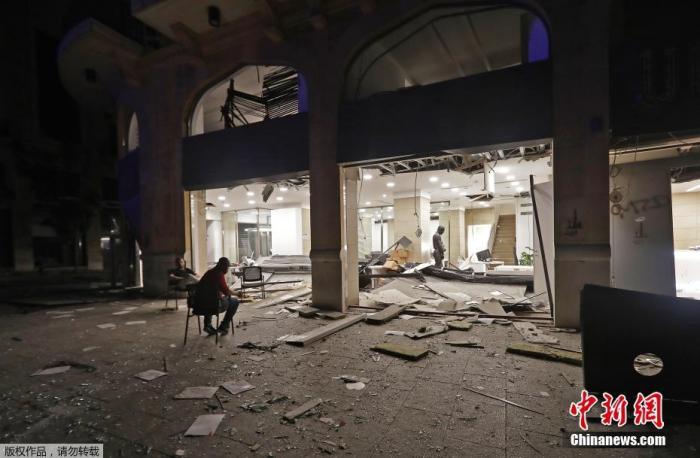China News Service, August 5, reported a comprehensive report that a violent explosion occurred in the Lebanese capital Beirut on the 4th, which has caused more than 100 deaths and more than 4,000 injuries. As Lebanon sought help from the international community, including the United States, Russia, and countries in the Middle East, they expressed their deep condolences and expressed their willingness to provide assistance.
On the same day, Lebanese Prime Minister Hassan Diab inspected the explosion site and then declared the 5th as a national day of mourning and said that Lebanon would seek help from the international community. Afterwards, the Lebanese Ministry of Health also requested WHO and Qatar to provide medical assistance to the victims of the Beirut explosion.
At around 6 pm on August 4, local time, a huge explosion occurred in the port area of Beirut, the capital of Lebanon. Many houses were damaged, glass was shattered, and pink mushroom clouds and thick smoke rose in the sky.
Earlier, World Health Organization spokesperson Inas Hamam said that WHO is sending medicines and surgical kits to treat the wounded to Beirut.
US President Trump said that he is willing to provide assistance and express his deepest sympathy to the country and the people. Secretary of State Pompeo said on social networking sites that the United States is “monitoring and is always ready to assist the Lebanese people in this terrible tragedy.”
Russian President Putin also sent a message of condolences to the Lebanese President for the casualties and extensive damage caused by the bombing. Putin said: "Please convey our condolences and support to the families of the victims, and wish all the injured a speedy recovery."
British Prime Minister Johnson pointed out: "The photos and videos of Beirut tonight are shocking. I pray for all those who are caught in this terrible accident." "The UK stands ready to provide support in all possible ways, including those affected British citizens. ."
The explosion was so powerful that the whole city felt the shock waves, the windows of houses were shattered, and the apartment balconies collapsed.
In the Middle East, the countries in the Persian Gulf region first supported Lebanon. Qatar promised to send field hospitals to support the local medical system. Qatar’s emir and commander-in-chief of the armed forces, Tamim bin Hamad Al Thani, wish "the wounded can recover as soon as possible"; Kuwait also promised that it would Provide emergency medical assistance; Iraqi Prime Minister Khadimi has given instructions that a medical team will be quickly formed to provide emergency assistance to Lebanon.
Israel also expressed its willingness to provide humanitarian assistance to Lebanon. The Israeli Prime Minister’s Office issued a statement: “Prime Minister Netanyahu has approved the provision of humanitarian and medical assistance to Lebanon. At present, the head of the National Security Council is communicating with the UN special envoy to understand how Israel can help Lebanon.”
In addition, Latin American countries such as Brazil, Mexico, Panama and Ecuador have expressed their deep condolences to the dead and wounded. Malaysia and India have also expressed shock and sadness in this incident. The Malaysian Foreign Minister said that they will do everything they can to help.

